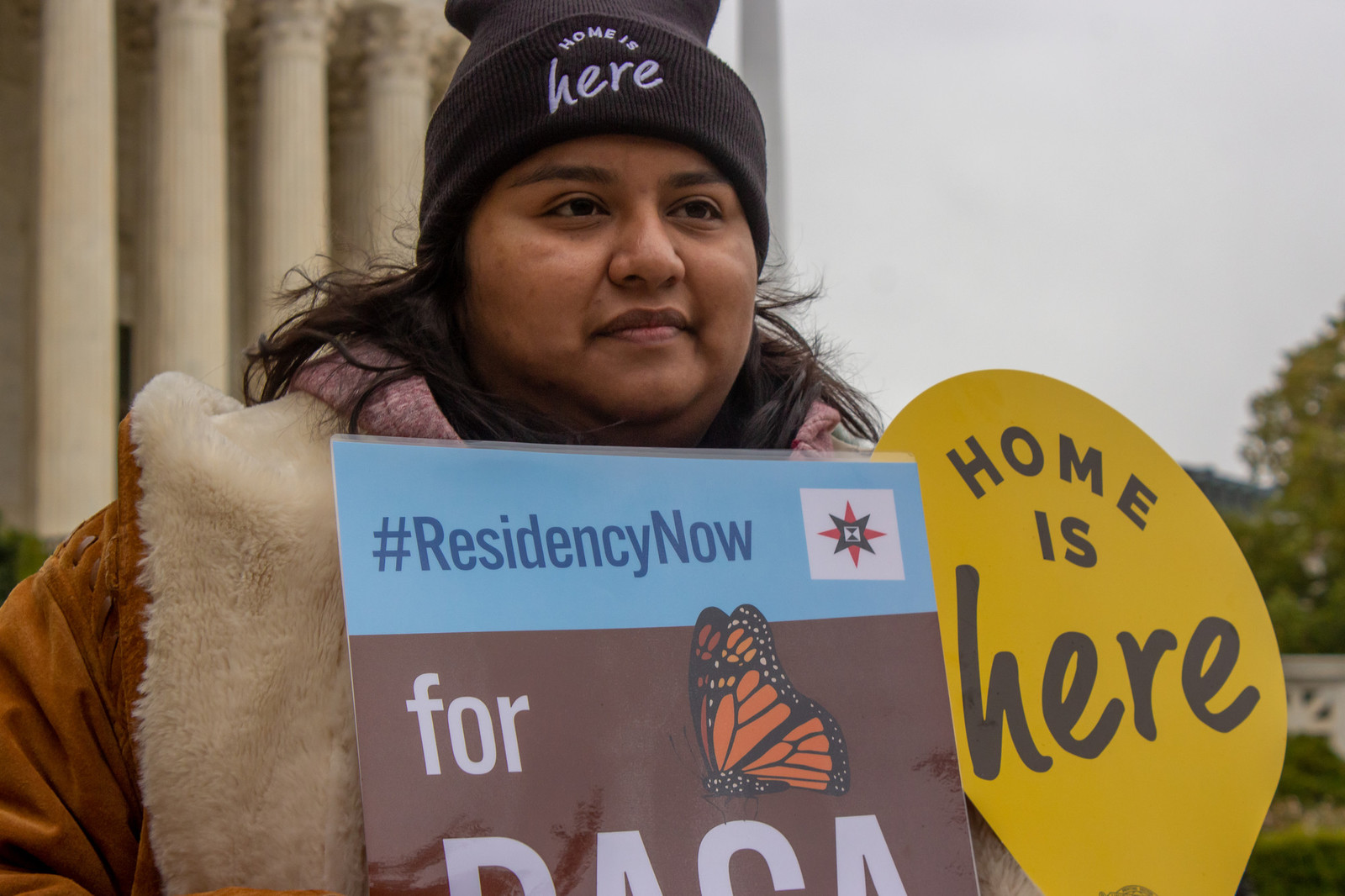
Itzel Hernandez, a DACA recipient and organizer with AFSC, at a Home Is Here rally in Washington, D.C. during the Supreme Court hearing on DACA. Carl Roose / AFSC
For months, I was among hundreds of thousands of DACA recipients waiting for the Supreme Court to rule on the fate of the program, which protects from deportation people who came to the U.S. as children.
We weren’t just spectators watching politics unfold—our lives and futures were at stake.
When I finally saw the Supreme Court decision online, I had to refresh the page. I couldn’t believe that we had won. The court ruled to uphold DACA, and recipients could continue living and working in the U.S. without fear of deportation. It was emotional to experience that relief for myself and so many others—and to think about the possibility that so many other young people I work with could apply for protection, too.
The ruling also offered a glimmer of hope to the many DACA recipients who want to visit our loved ones outside of the U.S.—an opportunity that the Trump administration took away when it rescinded DACA in 2017.
I was 10 years old when I left Mexico with my family to live in the U.S. At the time I didn’t understand what it would mean to leave and live thousands of miles from my grandmother, aunts, uncles and cousins.
Since DACA was created in 2012, DACA recipients have been able to apply for what’s known as “advance parole” travel authorization to pursue humanitarian, educational, and employment opportunities abroad. Humanitarian reasons for traveling include seeing a sick family member or returning to a country to bury a loved one.
Though traveling outside of the U.S with advance parole has always carried the risk of being denied reentry into the country, even more so under a hostile anti-immigrant administration, the importance of having advance parole cannot be overstated. The opportunity for DACA recipients like me to visit family and loved ones was cruelly taken away when the administration suspended approvals of advance parole for DACA recipients in 2017. And even if advanced parole is reinstated, the anti-immigrant and xenophobic rhetoric and policies from the Trump administration will cause DACA recipients to fear taking advantage of the its benefits.
This is a part of immigration that many people don’t think about. But imagine what it means to be separated from your loved ones for more than a decade—and how much you give up. Imagine wanting to be with your mother or grandfather one last time before they pass away. Imagine wanting to be among loved ones to bury a brother or sister.
When I was 22, I had the opportunity to return to Mexico as part of a delegation of DACA recipients. I knew then what leaving my family meant. Every member of our group wept when it was time to return to the U.S. We all knew we might never see our loved ones in Mexico again—and that we wanted to fight like hell to keep that from happening.
Under the Supreme Court’s decision, the Trump administration should resume accepting applications for advance parole from DACA recipients—and we must hold the administration accountable for fulfilling that requirement. Since 2019, I have organized with nearly a hundred DACA recipients across the U.S. in the National Campaign to Restore DACA’s Advance Parole, lobbying members of Congress to protect our opportunity to stay connected to our loved ones.
At the same time, we must urge Congress to pass a legislative solution to permanently protect DACA recipients and their families from future attacks from this and any administration—and provide a roadmap to citizenship for all 11 million undocumented immigrants.
Our struggle to restore advance parole remind us that DACA is not enough—and it was never meant to be enough. Until we have a permanent solution, we will continue to live in limbo.
No one should ever fear being deported and ripped away from their families and communities. Not DACA recipients, not our parents, not the young undocumented people I work with every day, not anyone. We all deserve to be recognized with dignity and humanity and to call this place home once and for all.